Blog
Know How to Connect and Install LED Strip Lights
Updated on Feb 2025
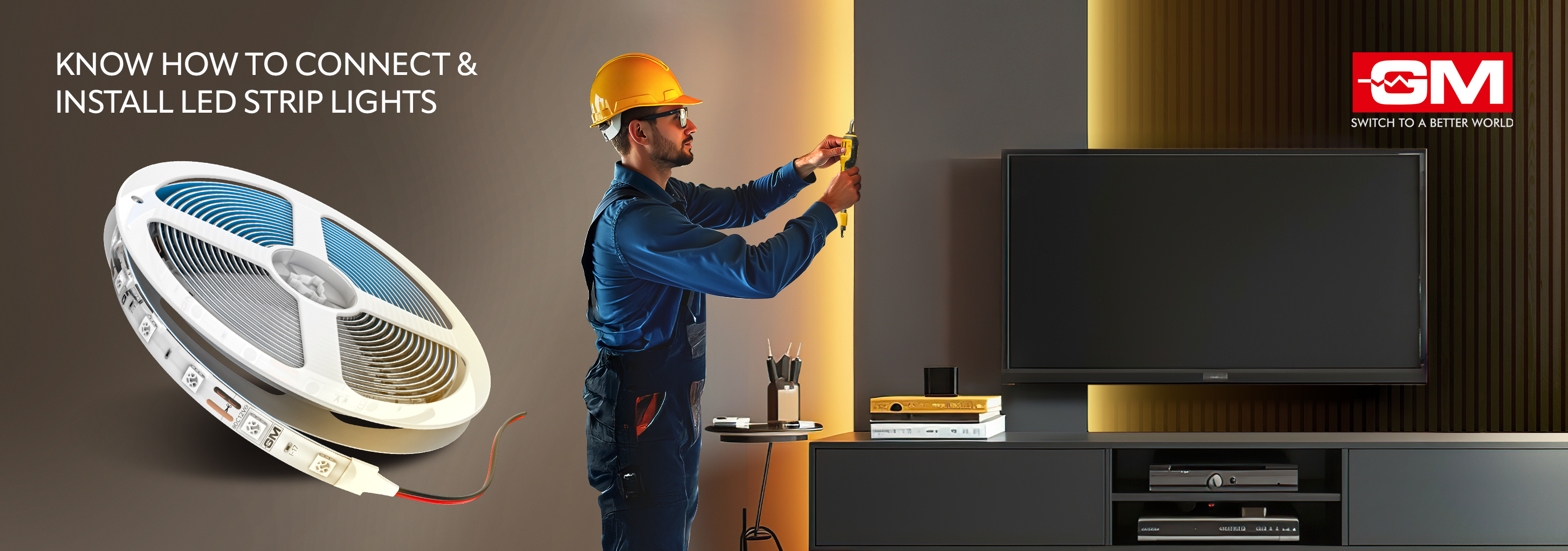
LED strip lights have revolutionised home decor and lighting solutions, offering flexibility, efficiency, and aesthetic appeal. From adding a soft glow to your living room to creating vibrant under-cabinet lighting, these versatile lights are easy to install and connect. In this guide, we will walk you through the steps on how to connect LED strip lights and how to install LED light strips for various applications.
What You Need to Know Before Installation
Before diving into the installation process, understanding a few basics is essential:
● Voltage Compatibility: Ensure your LED strip lights and power source operate at the same voltage.
● Surface Preparation: Clean and dry the surface to ensure proper adhesion.
● Required Tools: Keep connectors, scissors, and a compatible power adapter handy.
How to Connect LED Strip Lights
Connecting LED strip lights correctly ensures they function optimally and last longer. Follow these steps:
1. Measure and Plan
Determine the length of the LED strips you need and identify where you want to place them. Consider corners, edges, and power outlet locations for seamless installation.
2. Prepare the Surface
Clean the surface where you will stick the LED strip lights. Use a damp cloth or cleaning solution to remove dust, oil, or residue. Let the surface dry completely.
3. Cut the Strip to Size
LED strip lights come with marked cut points. Use sharp scissors to cut along these points without damaging the circuit. This step is crucial for customising the length.
4. Connect the LED Strips
Use connectors to join multiple strips or attach the strip to the power source. For connecting LED strips securely, align the positive and negative terminals of the strip with the connectors. Snap the connectors in place.
5. Attach the Power Adapter
Plug the power adapter into the end of the LED strip. Ensure the adapter matches the voltage and wattage requirements of the strip. If connecting multiple strips, use a splitter to distribute power evenly.
How to Install LED Light Strip
1. Peel and Stick
Remove the adhesive backing from the strip and press it firmly onto the prepared surface. Apply consistent pressure for at least 10 seconds to ensure a secure bond. For uneven surfaces, use mounting clips for added stability.
2. Test the Connection
Before finalising the installation, plug in the power source to test the LED strip lights. Ensure all segments light up evenly. Adjust connections if necessary.
3. Customise the Layout
For creative designs, loop or bend the strip around corners. Use extenders or 90-degree connectors to maintain a seamless flow of light.
How to Cut and Connect LED Strip Lights
If you are wondering how to cut and connect LED strip lights, follow these additional tips:
● Cutting: Always cut along the designated marks to avoid damaging the circuit.
● Connecting: Use solderless connectors for a quick and secure connection. Align the positive and negative terminals to prevent polarity issues.
● Securing: Reinforce the connections with adhesive tape or mounting clips for durability.
Common Applications of LED Strip Lights
1. Under-Cabinet Lighting
Illuminate kitchen countertops or display shelves with LED strips. These lights provide functional task lighting while enhancing aesthetics.
2. Ceiling Cove Lighting
Create an elegant ambience by installing LED strip lights along ceiling coves. This idea adds depth and sophistication to any room.
3. Outdoor Lighting
Choose waterproof LED strips for outdoor applications. Highlight pathways, patios, or garden features with these durable lights.
Troubleshooting and Maintenance
To keep your LED strips functioning well:
● Check Connections: Ensure all connectors are properly aligned.
● Avoid Overloading: Use a power source with adequate wattage.
● Clean Regularly: Wipe the strips gently to remove dust and debris.
Benefits of Connecting LED Strips
● Energy Efficiency: LED strips consume less power, reducing energy bills.
● Versatility: Suitable for various applications, including decorative and functional lighting.
● Customisability: Easily cut and connect strips to fit your specific needs.
Now that you know how to connect LED strip lights and how to install LED light strips, transforming your space has never been easier. Whether it’s for accent lighting or creating a vibrant atmosphere, your most searched “how to install LED light strip” has a versatile solution. Remember to follow proper installation techniques and choose high-quality products for the best results. With GM Modular’s premium LED strip lights, you can bring your lighting vision to life effortlessly. Explore our range today and illuminate your world!
Check out our detailed guide on Everything You Need to Know About LED Strip Lights to explore more insights into the versatility and benefits of LED strip lighting.
Related Blogs
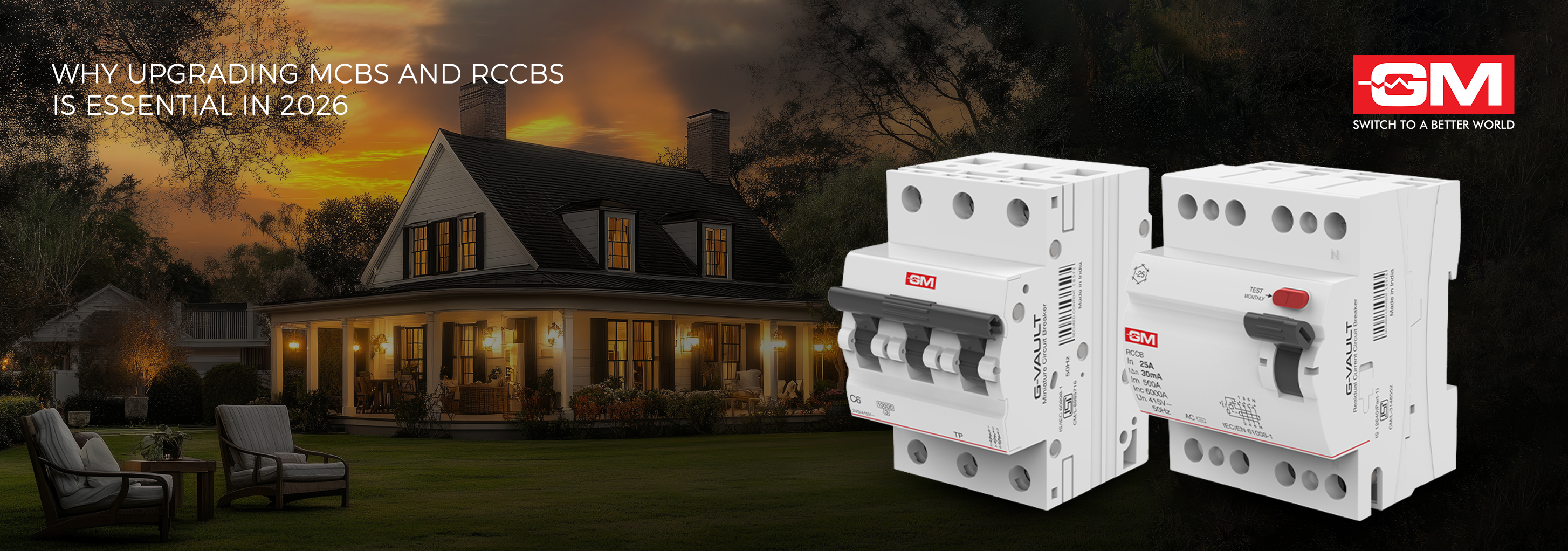
Why Upgrading MCBs and RCCBs Is Essential in 2026
Picture this: you're hosting a family dinner, the air conditioner is running, the induction cooktop is on full blast, and someone plugs in the mixer grinder. Suddenly, everything goes dark. If this scenario feels familiar, your home's electrical prot
Read More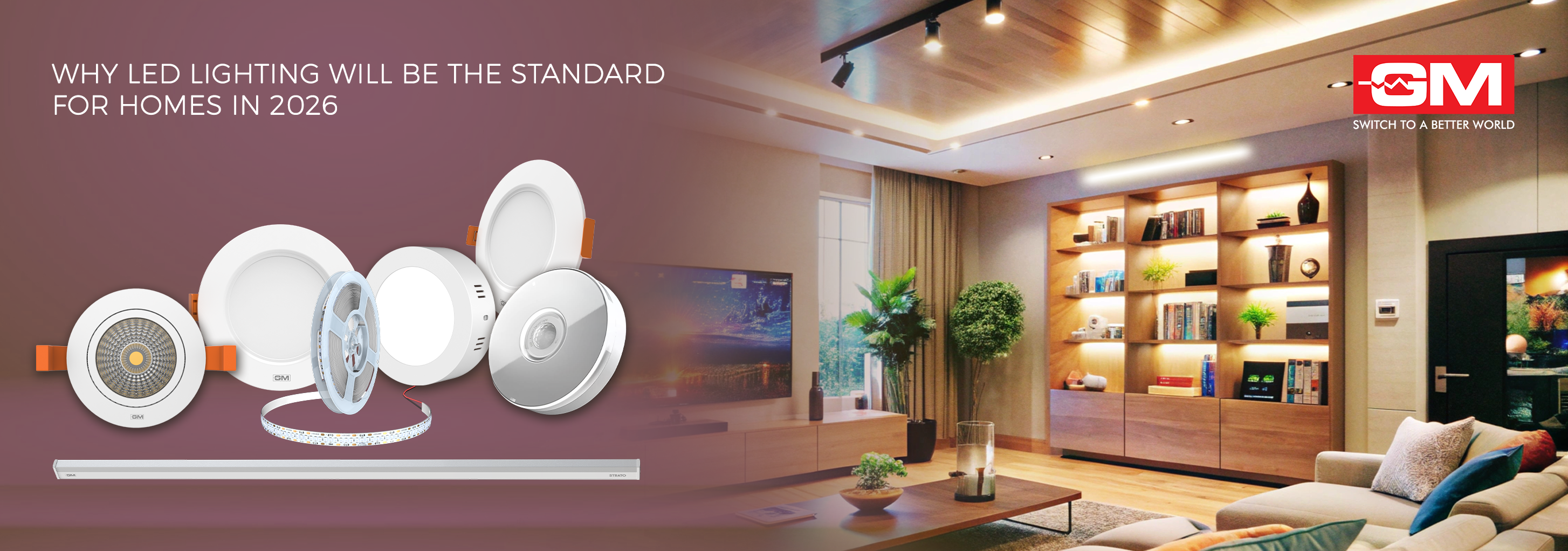
Why LED Lighting Will Be the Standard for Homes in 2026
Modern residential illumination in 2026 is defined by the strategic integration of LED strip lights. By providing a soft, indirect glow that avoids the harshness of traditional tubes, these solutions allow Indian homeowners to achieve a sophisticated
Read More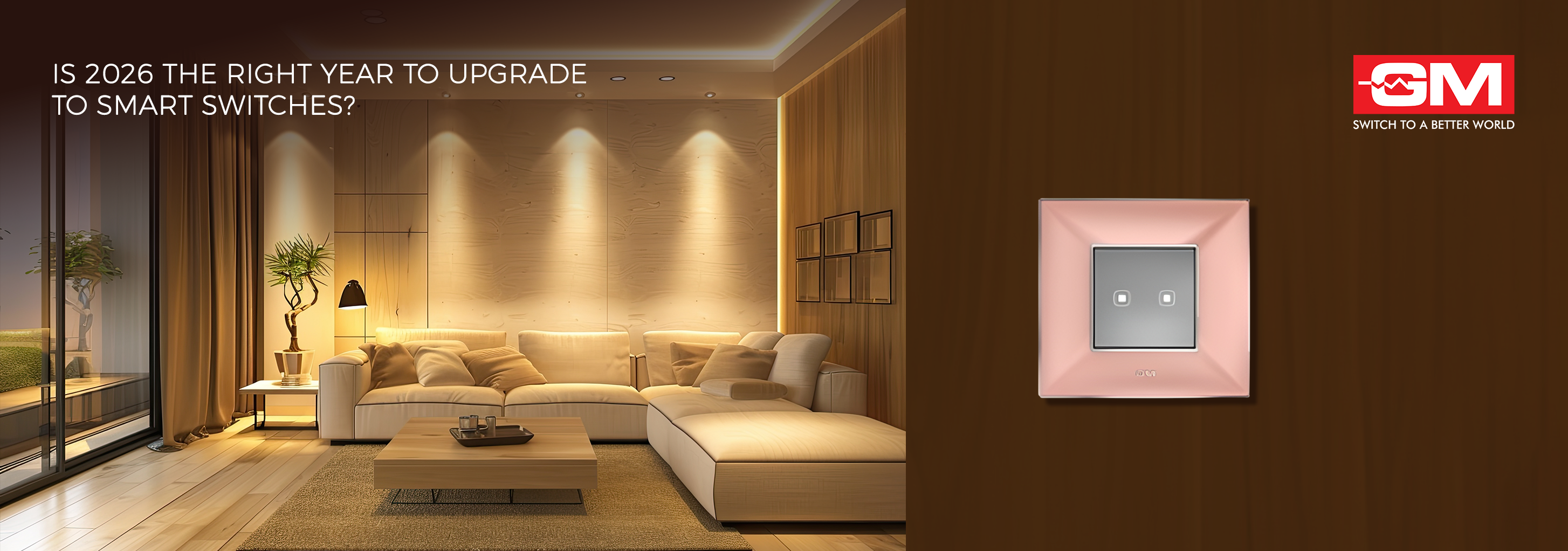
Is 2026 the Right Year to Upgrade to Smart Switches?
Picture this: you are already running late for work, and halfway to the office, a nagging thought strikes—did you turn off the bedroom AC? Now imagine resolving that worry with a single tap on your phone. This is not a distant dream anymore. Sm
Read More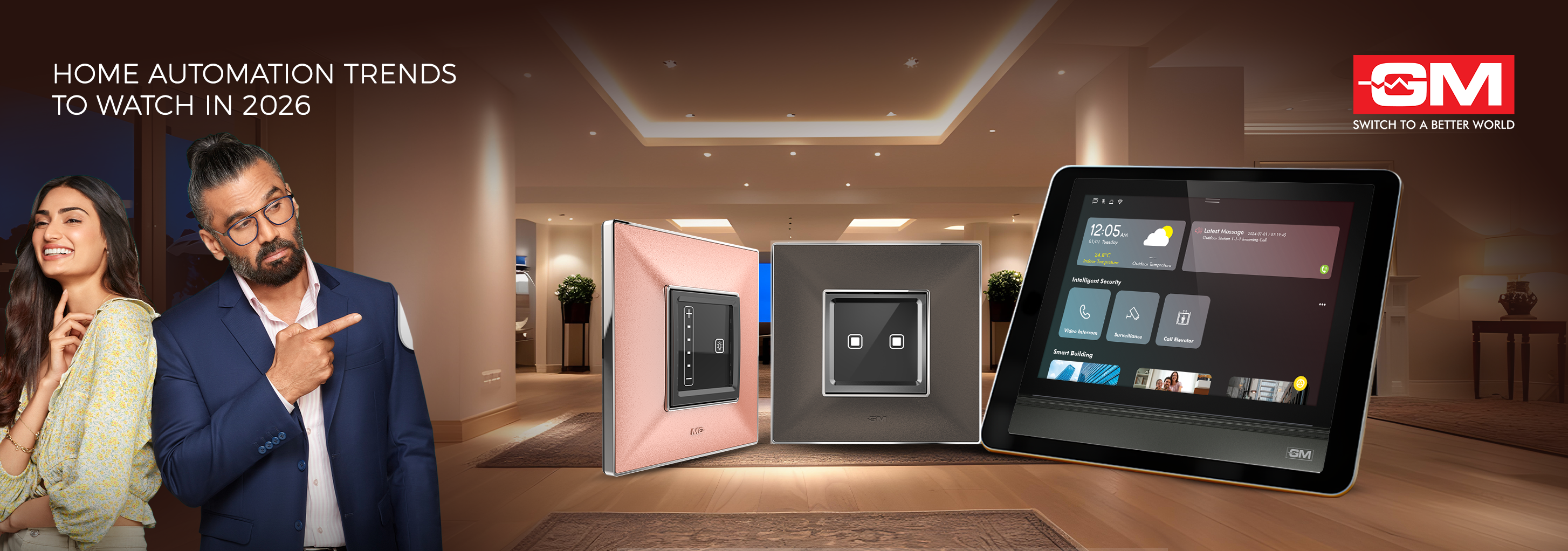
Home Automation Trends to Watch in 2026
Imagine walking into your home after a long day. The lights adjust to your preferred evening setting, the fan speeds up to counter the summer heat, and your favourite playlist begins softly in the background. No buttons pressed, no commands spoken. T
Read More